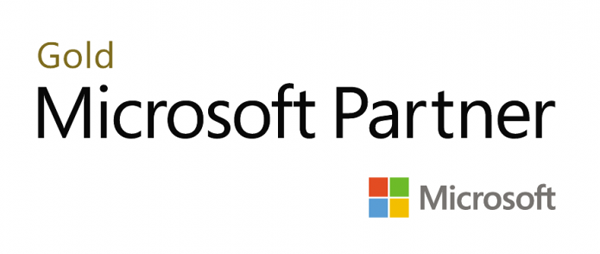Implementing a Data Warehouse with Microsoft SQL Server On Demand 20463
- Seminar
- E-Learning
- Zurzeit keine Termine
- 40 Unterrichtseinheiten
- Teilnahmebescheinigung
Seminarnummer: 29425
This course describes how to implement a data warehouse platform to support a BI solution. Students will learn how to create a data warehouse with Microsoft® SQL Server® 2014, implement ETL with SQL Server Integration Services, and validate and cleanse data with SQL Server Data Quality Services and SQL Server Master Data Services.
Nutzen
In dieser MOC on Demand Version ist eine original MOC Unterlage in digitaler Form enthalten.
After completing this course, students will be able to:
After completing this course, students will be able to:
- Describe data warehouse concepts and architecture considerations.
- Select an appropriate hardware platform for a data warehouse.
- Design and implement a data warehouse.
- Implement Data Flow in an SSIS Package.
- Implement Control Flow in an SSIS Package.
- Debug and Troubleshoot SSIS packages.
- Implement an ETL solution that supports incremental data extraction.
- Implement an ETL solution that supports incremental data loading.
- Implement data cleansing by using Microsoft Data Quality Services.
- Implement Master Data Services to enforce data integrity.
- Extend SSIS with custom scripts and components.
- Deploy and Configure SSIS packages.
- Describe how BI solutions can consume data from the data warehouse.
Zielgruppe
This course is intended for database professionals who need to fulfil a Business Intelligence Developer role. They will need to focus on hands-on work creating BI solutions including Data Warehouse implementation, ETL, and data cleansing. Primary responsibilities include:
Implementing a data warehouse. Developing SSIS packages for data extraction, transformation, and loading. Enforcing data integrity by using Master Data Services. Cleansing data by using Data Quality Services.This course is intended for database professionals who need to fulfil a Business Intelligence Developer role. They will need to focus on hands-on work creating BI solutions including Data Warehouse implementation, ETL, and data cleansing. Primary responsibilities include:
Anforderungen
This course requires that you meet the following prerequisites:
- At least 2 years experience of working with relational databases, including:
- Designing a normalized database.
- Creating tables and relationships.
- Querying with Transact-SQL.
- Some exposure to basic programming constructs (such as looping and branching).
Inhalte
Module 1: Introduction to Data Warehousing
This module provides an introduction to the key components of a data warehousing solution and the high-level considerations you must take into account when you embark on a data warehousing project.
Lessons
Module 2: Data Warehouse Hardware Considerations This module discusses considerations for selecting hardware and distributing SQL Server facilities across servers.
Lessons
Module 3: Designing and Implementing a Data Warehouse
This module describes the key considerations for the logical design of a data warehouse, and then discusses best practices for its physical implementation.
Lessons
Module 4: Creating an ETL Solution with SSIS This module discusses considerations for implementing an ETL process, and then focuses on Microsoft SQL Server Integration Services (SSIS) as a platform for building ETL solutions.
Lessons
Module 5: Implementing Control Flow in an SSIS Package This module describes how to implement ETL solutions that combine multiple tasks and workflow logic.
Lessons
Module 6: Debugging and Troubleshooting SSIS Packages This module describes how you can debug packages to find the cause of errors that occur during execution. It then discusses the logging functionality built into SSIS that you can use to log events for troubleshooting purposes. Finally, the module describes common approaches for handling errors in control flow and data flow.
Lessons
Module 7: Implementing an Incremental ETL Process This module describes the techniques you can use to implement an incremental data warehouse refresh process.
Lessons
Module 8: Enforcing Data Quality This module introduces Microsoft SQL Server Data Quality Services (DQS), and describes how you can use it to cleanse and deduplicate data.
Lessons
Module 9: Using Master Data Services Master Data Services provides a way for organizations to standardize data and improve the quality, consistency, and reliability of the data that guides key business decisions. This module introduces Master Data Services and explains the benefits of using it.
Lessons
Module 10: Extending SQL Server Integration
Lessons
- Overview of Data Warehousing
- Considerations for a Data Warehouse Solution
Module 2: Data Warehouse Hardware Considerations This module discusses considerations for selecting hardware and distributing SQL Server facilities across servers.
Lessons
- Considerations for building a Data Warehouse
- Data Warehouse Reference Architectures and Appliances
Module 3: Designing and Implementing a Data Warehouse
This module describes the key considerations for the logical design of a data warehouse, and then discusses best practices for its physical implementation.
Lessons
- Logical Design for a Data Warehouse
- Physical design for a data warehouse
Module 4: Creating an ETL Solution with SSIS This module discusses considerations for implementing an ETL process, and then focuses on Microsoft SQL Server Integration Services (SSIS) as a platform for building ETL solutions.
Lessons
- Introduction to ETL with SSIS
- Exploring Data Sources
- Implementing Data Flow
Module 5: Implementing Control Flow in an SSIS Package This module describes how to implement ETL solutions that combine multiple tasks and workflow logic.
Lessons
- Introduction to Control Flow
- Creating Dynamic Packages
- Using Containers
- Managing Consistency
Module 6: Debugging and Troubleshooting SSIS Packages This module describes how you can debug packages to find the cause of errors that occur during execution. It then discusses the logging functionality built into SSIS that you can use to log events for troubleshooting purposes. Finally, the module describes common approaches for handling errors in control flow and data flow.
Lessons
- Debugging an SSIS Package
- Logging SSIS Package Events
- Handling Errors in an SSIS Package
Module 7: Implementing an Incremental ETL Process This module describes the techniques you can use to implement an incremental data warehouse refresh process.
Lessons
- Introduction to Incremental ETL
- Extracting Modified Data
- Loading Modified data
Module 8: Enforcing Data Quality This module introduces Microsoft SQL Server Data Quality Services (DQS), and describes how you can use it to cleanse and deduplicate data.
Lessons
- Introduction to Data Quality
- Using Data Quality Services to Cleanse Data
- Using Data Quality Services to Match data
Module 9: Using Master Data Services Master Data Services provides a way for organizations to standardize data and improve the quality, consistency, and reliability of the data that guides key business decisions. This module introduces Master Data Services and explains the benefits of using it.
Lessons
- Master Data Services Concepts
- Implementing a Master Data Services Model
- Managing Master Data
- Creating a Master Data Hub
Module 10: Extending SQL Server Integration
Hinweise
MOC On Demand Trainings sind original Microsoft Trainings, in denen Sie zeit- und ortsungebunden lernen können.
Diese Trainings enthalten:
- Zugang zum offiziellen Microsoft Video on Demand Kurs für 90 Tage ab dem ersten Zugriff.
- Einen Lab-Online-Zugang für praktische Übungen, der ab Kauf 6 Monate gültig ist.
- Eine originale MOC Schulungsunterlage in digitaler Form, wie sie auch in den Live-Trainings eingesetzt wird.


